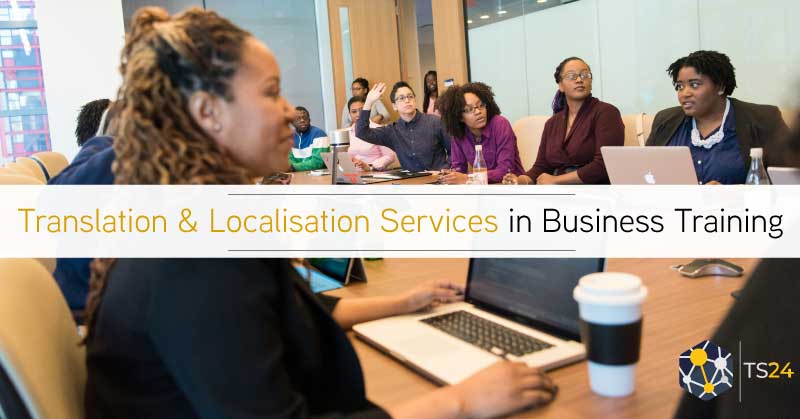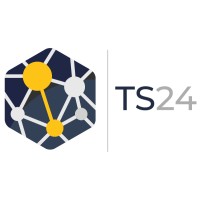Localisation and Translation Services in Internal Business Training
Do you run a company with an international mix of employees? If you are a global venture with offices in different parts of the world, chances are that you have a multicultural workforce to handle.
While this is great for the future of globalisation, corporations that deal with an expanded business landscape often face challenges such as the training and education of their employees.
When it comes to the internal training of your workforce, it is imperative to note that it is not “one size fits all.” You need to ensure that the training sessions you offer align with the individual language and culture of each staff member with the help of professional localisation and expert translation services.
What is Language Localisation?
Let’s start with the basics.
Localisation service is the process of adapting a service or product to a specific audience. Most people confuse it with translation; however, they are different.
Translation is all about the words you use. Localisation, on the other hand, is how your specific service or product resonates with the culture of your target market.
There are many benefits of practising localisation. For instance, it:
• Leads to higher customer satisfaction.
• Results in improved customer experience.
• Causes enhanced brand image.
• Results in competitive advantage.
• Generates great revenue.
EXPERT’S TIP: Are you looking for the best translation agency for your business? Here are the 8 aspects you should pay attention to.
The Role of Localisation & Translation in Internal Training
Integrating localisation with internal training becomes imperative when dealing with employees from various parts of the world. It helps ensure that all workers are provided with the same level of language skills in their local language to ensure a better training experience.
Localised internal training can also have a positive impact on the motivation of your workforce. It helps your employees feel important. This builds trust in your organisation, resulting in a positive outcome.
Here are a few other reasons why you should translate and localise your internal training.
• When you practise localisation during corporate training, you build a solid corporate culture through employee loyalty. According to statistics, 87% of the Millennial workforce believe that development and learning at the workplace are significantly important. When the training program is designed to consider every employee, language, background, and culture, employees feel extremely satisfied.
• Translated workshops or training programs always make the participants feel valued. They develop a sense of inclusion and feel respected by their company.
• A training session conducted in the individual language of every participant encourages engagement. It helps increase active participation because every word or material is clearly understood by everyone, despite the differences in their cultures.
• Finally, if you run a business in a country where legal laws linked to localisation are strict, you have no option but to provide compliance training in the employees’ language. It is imperative to stay safe from massive fines.
Is This All Easy to Achieve?
The above benefits may push you to start translating your internal training material immediately. However, translation and localisation come with their fair share of challenges.
For instance, it is logistically challenging to localise a training program for it to meet global standards. You may require an expert’s assistance and guidance to make this possible.
Similarly, suppose you have eLearning courses to present to your employees. In that case, you may have to find a localisation partner with vast experience managing LMS or Learning Management Systems for a wider audience.
Another challenge is to consider more than just the language of your employees. When localising training material, you must also consider the dialect, vocabulary, pronunciations, and the literal meaning of terms used by the various people working for you. For this, you may need to hire the best professional localisation service provider in your area.
They will be the most experienced team of experts to offer you excellent translation services. Besides, they will produce culturally acceptable and appropriate internal training content.
EXPERT’S TIP: Are you thinking about translating your website? Learn more about website translations and why it’s a good idea to translate your company’s site!
The Process to Translate & Localise Internal Training
Now that you understand the benefits of localising your internal training for the workforce, here are ways to achieve this goal. Dig in to kickstart the process.
Take Language and Culture Localisation Seriously
Work on producing easy-to-understand training content. Make it concise and clear. Moreover, ensure that it meets the requirements of all the cultural and linguistic backgrounds of people working for you.
Utilise the Power of eLearning
Thanks to the new digital world, exchanging experiences and knowledge across the globe has become relatively easy. Take full advantage of this to offer the same learning experience to all your employees.
Ensure the localisation of educational videos, booklets, and presentations without compromising on their overall quality. Each material delivered should serve a similar purpose.
Streamline Your Localised Training Program
It isn’t easy to localise your training material in multiple languages in one go. However, if you have all the data available in a cloud-based system, you won’t have a problem maintaining uniformity and equality among various localised copies of this training program.
This helps professionals access all localisation processes conveniently, saving time and effort overall. Having everything in one database also allows employees to quickly find relevant content.
Craft Culturally Relevant Case Studies Where Appropriate
To produce an effective and fun localised training program for your employees, incorporate case studies they can relate to. This addition helps your workforce think outside the box while enjoying their cultural references.
Also, you can add challenges and games to your content. Again, ensure that there is an element of individual culture and norms to make the games engaging for the audience.
Final Words
Localisation is a powerful tool to make your internal training session more interactive and relevant. It is all about recognising your audience well to understand their origins. This helps make training content that your employees easily resonate with.
Although localising internal training is tough, you can always overcome its challenges with the help of professional localisation service providers. They are the most appropriate experts to help you create training materials to satisfy and teach your workforce.
About TS24
Translation Services 24 (TS24) is an expert London Translation Services provider with expert translators in over 200 languages. We work with clients in all corporate and public industries and specialise in sector-specific linguistic solutions. With over a decade of experience in the industry, 15+ million words converted every year and 100,000+ projects completed, TS24 is a leading provider of expert translations and interpretation services and an officially certified member of the ATC. Contact TS24 here. You can also read all of our recent articles here.
Follow Translation Services 24 on Social Media







